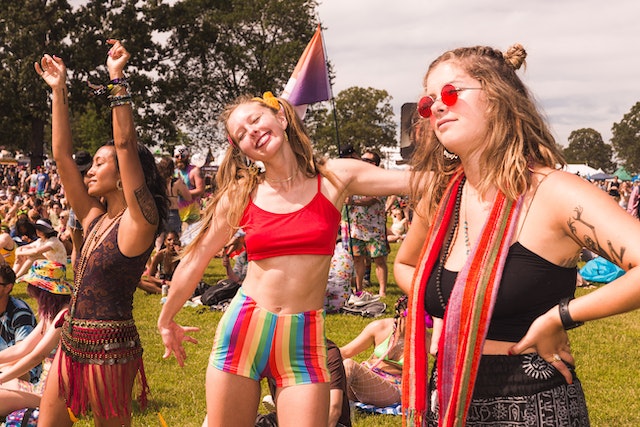Introduction: The fight for LGBTQ+ rights extends far beyond national borders, with activists around the world working tirelessly to challenge discrimination, promote equality, and foster acceptance. This article provides an overview of global LGBTQ+ rights movements, highlighting the progress made, ongoing challenges, and the role of Pride events in promoting change and visibility on an
Introduction: The fight for LGBTQ+ rights extends far beyond national borders, with activists around the world working tirelessly to challenge discrimination, promote equality, and foster acceptance. This article provides an overview of global LGBTQ+ rights movements, highlighting the progress made, ongoing challenges, and the role of Pride events in promoting change and visibility on an international scale.
Pride as a Global Phenomenon: Pride events have emerged as a global phenomenon, celebrated in numerous countries to advocate for LGBTQ+ rights and promote visibility and acceptance. These events often coincide with important historical milestones, such as the Stonewall Riots, and have become platforms for protests, celebrations, and community-building across continents.
European LGBTQ+ Rights Movements: Many European countries have made significant strides in LGBTQ+ rights. The Netherlands, for example, was the first country to legalize same-sex marriage in 2001. Other nations, including Germany, France, and Spain, have followed suit. European Pride events, such as Amsterdam Pride and Madrid Pride, attract millions of participants and serve as beacons of progress and celebration.
North American LGBTQ+ Rights Movements: North America has witnessed substantial advancements in LGBTQ+ rights, particularly in Canada and the United States. The legalization of same-sex marriage in these countries marked significant milestones. Pride events, such as New York City Pride and San Francisco Pride, attract large crowds and continue to serve as platforms for activism and celebration.
Latin American LGBTQ+ Rights Movements: Latin America has seen significant progress in LGBTQ+ rights, with countries like Argentina, Uruguay, and Brazil legalizing same-sex marriage. Pride events, such as São Paulo Pride in Brazil and Buenos Aires Pride in Argentina, have grown to become some of the largest and most vibrant celebrations in the region, promoting visibility, acceptance, and advocacy.
Asian LGBTQ+ Rights Movements: LGBTQ+ rights movements in Asia face unique challenges due to cultural, religious, and legal contexts. However, there have been notable milestones, such as Taiwan becoming the first country in Asia to legalize same-sex marriage in 2019. Pride events in cities like Taipei, Tokyo, and Seoul have gained momentum, serving as important platforms for activism, awareness, and community support.
African LGBTQ+ Rights Movements: LGBTQ+ rights movements in Africa face significant obstacles, with many countries criminalizing same-sex relationships. However, there are pockets of progress, such as South Africa, where same-sex marriage is legal. Pride events in Johannesburg, Cape Town, and other cities provide spaces for LGBTQ+ individuals to gather, raise awareness, and advocate for change amidst ongoing challenges.
Ongoing Challenges and the Role of Pride: Despite progress in many parts of the world, LGBTQ+ individuals still face discrimination, violence, and legal barriers in numerous countries. Pride events play a crucial role in amplifying the voices of marginalized communities, advocating for legal protections, challenging societal prejudices, and promoting understanding and acceptance. They provide platforms for education, community-building, and international solidarity.
Conclusion: Global LGBTQ+ rights movements and Pride events reflect the collective struggle for equality, acceptance, and human rights. While progress has been made in many regions, ongoing challenges persist. Pride events serve as powerful catalysts for change, promoting visibility, fostering activism, and building supportive communities. As we continue to celebrate Pride worldwide, it is essential to acknowledge and support LGBTQ+ activists fighting for equality in diverse cultural, social, and political contexts.

















Leave a Comment
Your email address will not be published. Required fields are marked with *